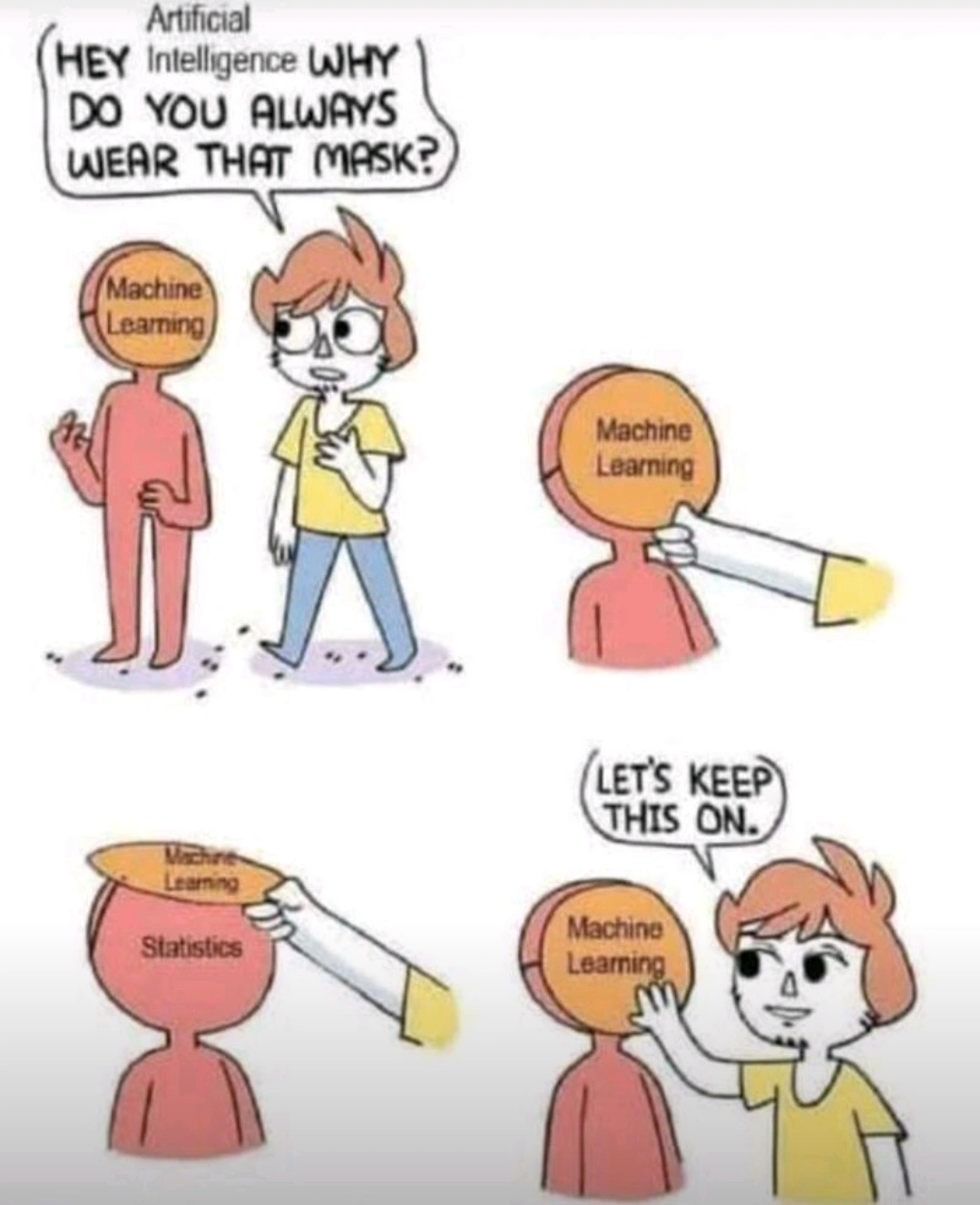this post was submitted on 08 Jul 2024
856 points (96.9% liked)
Science Memes
10940 readers
1761 users here now
Welcome to c/science_memes @ Mander.xyz!
A place for majestic STEMLORD peacocking, as well as memes about the realities of working in a lab.

Rules
- Don't throw mud. Behave like an intellectual and remember the human.
- Keep it rooted (on topic).
- No spam.
- Infographics welcome, get schooled.
This is a science community. We use the Dawkins definition of meme.
Research Committee
Other Mander Communities
Science and Research
Biology and Life Sciences
- [email protected]
- [email protected]
- [email protected]
- [email protected]
- [email protected]
- [email protected]
- [email protected]
- [email protected]
- [email protected]
- [email protected]
- [email protected]
- [email protected]
- [email protected]
- [email protected]
- [email protected]
- [email protected]
- [email protected]
- [email protected]
- [email protected]
- [email protected]
- [email protected]
- [email protected]
- [email protected]
- [email protected]
- !reptiles and [email protected]
Physical Sciences
- [email protected]
- [email protected]
- [email protected]
- [email protected]
- [email protected]
- [email protected]
- [email protected]
- [email protected]
- [email protected]
Humanities and Social Sciences
Practical and Applied Sciences
- !exercise-and [email protected]
- [email protected]
- !self [email protected]
- [email protected]
- [email protected]
- [email protected]
Memes
Miscellaneous
founded 2 years ago
MODERATORS
you are viewing a single comment's thread
view the rest of the comments
view the rest of the comments

I'd love to hear about any studies explaining the mechanism of human cognition.
Right now it's looking pretty neural-net-like to me. That's kind of where we got the idea for neural nets from in the first place.
Ehhh.... It depends on what you mean by human cognition. Usually when tech people are talking about cognition, they're just talking about a specific cognitive process in neurology.
Tech enthusiasts tend to present human cognition in a reductive manor that for the most part only focuses on the central nervous system. When in reality human cognition includes anyway we interact with the physical world or metaphysical concepts.
There's something called the mind body problem that's been mostly a philosophical concept for a long time, but is currently influencing work in medicine and in tech to a lesser degree.
Basically, it questions if it's appropriate to delineate the mind from the body when it comes to consciousness. There's a lot of evidence to suggest that that mental phenomenon are a subset of physical phenomenon. Meaning that cognition is reliant on actual physical interactions with our surroundings to develop.
You're just asking for any intro to cognitive psychology textbook.
At every step of modern computing people have thought that the human brain looks like the latest new thing. This is no different.
Past results are no guarantee of future performance.
Not a guarantee, no. A very, very strong predictor though. You have to have some kind of evidence beyond just vibes to start making claims that this time is totally different from all the others before anyone should take you seriously.
But claims of what future performance will be as given by people with careers, companies, and life changing amounts of money on the line are also no guarantee either.
The world would be a very different place if technology had advanced as predicted not even ten years ago.
It's not specifically related, but biological neurons and artificial neurons are quite different in how they function. Neural nets are a crude approximation of the biological version. Doesn't mean they can't solve similar problems or achieve similar levels of cognition , just that about the only similarity they have is "network of input/output things".